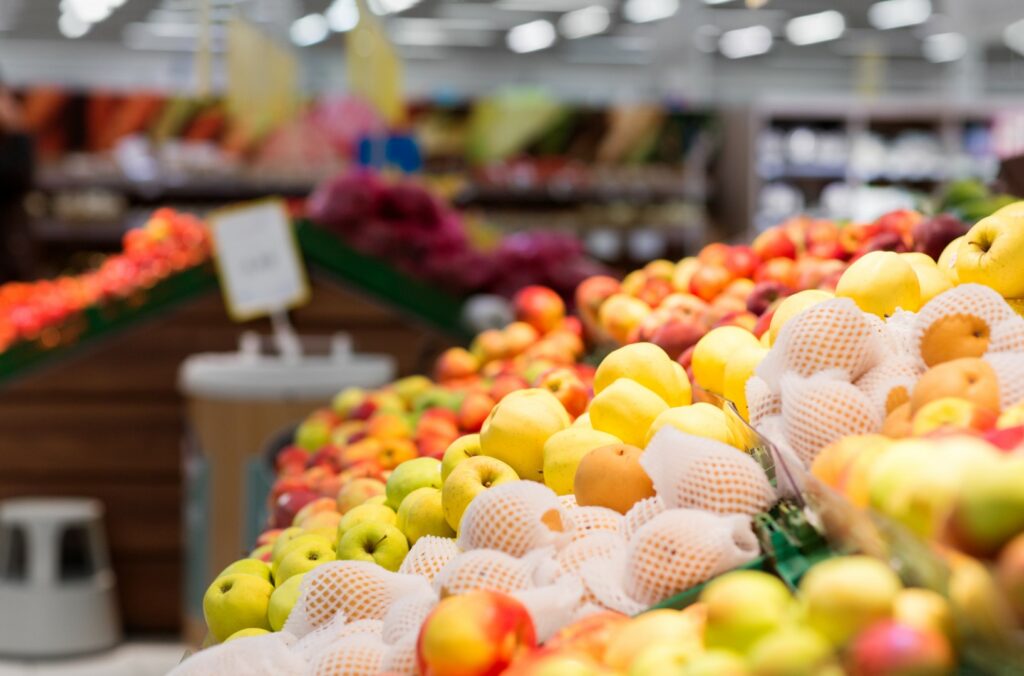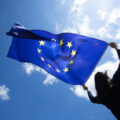Hurt twice over: Stigma and Muslims in the UK
Hurt twice over: Stigma and Muslims in the UK
This weekly comment was written by Muhammad Faisal Khalil and reflects his personal analyses and opinions, rather than those of EARS.
The COVID-19 pandemic drew attention to the marginalised state of Muslims in the UK. For example, the high death rate from COVID-19 among Muslims from Black, Asian, and minority ethnic (BAME) communities led to an official enquiry into health inequality.[1] Now, as the UK enters an ‘age of reinfection’[2] as well as a ‘cost-of-living’ crisis,[3] the future of Muslims in the UK continues to seem bleak. The shocks of COVID-19 embedded into daily life and prices spiralling out of control are set to hurt Muslims hard.
Three times poorer
Evidence confirming this situation is unfortunately undeniable. The Muslim Council of Britain (MCB) announced in April 2022 that an estimated 50% of Muslim households, nearly 1.6 million people, in the UK are living in poverty. This is three times higher than the UK’s general population, of which 18% are living in poverty.[4]
While the MCB called on the UK government to “take the bold actions necessary to avoid pushing families into destitution,”[5] more and more Muslim families are falling back on religious charity (zakat) and food banks to survive the rising cost of living and the pandemic.[6]
The shock of stigma
Growing evidence suggests that a key reason why British Muslims struggle more than other communities when a shock strikes is stigma. Stigma is the negative attitude towards a person or group of people who share certain characteristics, e.g. religion. Stigma can lead to discrimination – negative behaviour – toward the person or group of people.[7]
In his 2015 research, Anthony Heath of the University of Oxford found discrimination to be a key explanation for the high Muslim levels of poverty.[8] In addition to the impact of migration and certain social values, he found discrimination by employers in taking on and promoting Muslim workers, the cold reception of Muslim workers from non-Muslim co-workers, and pre-labour market discrimination (such as lower access to elite higher education institutions) to be key reasons for Muslims poverty.[9]
‘Lepers of Leicester’[10]
Evidence published as recently as May 2022 by the UK’s Scientific Advisory Group for Emergencies (SAGE) confirms the significance of stigma. It shows that stigma led to higher death rates among Muslims in the UK during the COVID-19 pandemic.[11] SAGE found that ethnic Bangladeshis and Pakistanis, who are overwhelmingly Muslims, faced “intersecting forms of stigma and racism relating to their ethnic and their religious identity, and triggering events intensify experiences of stigma.”[12]
Crucially, SAGE pointed out that both government policy and media coverage led to a disproportionate public emphasis on the spread of COVID-19 by Muslims, such as in the case of Muslim residents in Leicester who were blamed and locked down for spreading COVID-19.[13] SAGE concluded that in addition to fuelling social division, hostility and stress for British Muslims, this stigma undermined their access to health services.[14]
Muslim ‘exceptionalism’?
Why has stigma particularly affected Muslims in the first place? Anthony Heath speculates that one reason for this Muslim ‘exceptionalism’ is Islamophobia.[15] Then again, this answer leaves us with murkier questions still, such as: where does Islamophobia come from?
The answer to these questions, as journalist Peter Oborne has recently pointed out in his new book ‘The Fate of Abraham’,[16] lies in how the traditions of tolerance and multiculturalism have been dismantled in the UK.[17] Much like what Eqbal Ahmad has anticipated earlier,[18] Oborne argues that the Cold War conflict was replaced by fears of a new one: between Islam and the West. Many in the UK, much like in France,[19] suggested that Muslims were – exceptionally – trying to overturn British values and even conspiring to take over the state.
Over time, this has meant that people whose views are illiberal, even if not illegal, can be targeted as a threat to British society. This, according to Osborne, has created “a new relationship between the British state and Muslims.”[20] British Muslims have been increasingly pressured to assimilate by downplaying their distinctiveness.[21]
To be sure, as EARS reported earlier, the University of Birmingham recently found that the British public is nearly three times more likely to hold prejudiced views of Islam than of other religions and that Islamophobia is now ‘the dinner table prejudice’ because of how widespread and socially acceptable it has become.[22] Given the systemic nature of Islamophobia, it is highly unlikely that the stigma and discrimination Muslims exceptionally face will fade away in time to help them better survive the rising cost of living and the pandemic.
This weekly comment was written by Muhammad Faisal Khalil and reflects his personal analyses and opinions, rather than those of EARS.
Interested in similar topics? Go to our Dashboard.
[1] COVID-19: understanding the impact on BAME communities – GOV.UK
[2] Herd immunity now seems impossible. Welcome to the age of Covid reinfection | Devi Sridhar | The Guardian
[3] ′Cost-of-living′ crisis hits consumers as UK economy struggles with inflation | Business News – The Latest financial, market & economic news | DW | 12.05.2022
[4] Half of UK Muslims will struggle to provide enough food to break fast during Ramadan, charity says
[5] Half of UK Muslims will struggle to provide enough food to break fast during Ramadan, charity says
[6] Half of UK Muslims will struggle to provide enough food to break fast during Ramadan, charity says
[8] How can we explain the high Muslim levels of poverty? – CSI Nuffield
[9] Review of the relationship between religion and poverty – an analysis for the Joseph Rowntree Foundation
[10] Leicester lockdown: Dismay of the ‘lepers’ told they are not welcome at holiday parks, campsites and hotels | News | The Times
[11] COVID-19 Ethnicity subgroup: Interpreting differential health outcomes among minority ethnic groups
[12] COVID-19 Ethnicity subgroup: Interpreting differential health outcomes among minority ethnic groups
[13] COVID-19 Ethnicity subgroup: Interpreting differential health outcomes among minority ethnic groups
[14] COVID-19 Ethnicity subgroup: Interpreting differential health outcomes among minority ethnic groups
[15] The Fate of Abraham | Book by Peter Oborne | Official Publisher Page | Simon & Schuster UK
[16] Review of the relationship between religion and poverty – an analysis for the Joseph Rowntree Foundation
[17] How a neo-conservative think tank defined British Muslims | Middle East Eye
[18] Eqbal Ahmad, Confronting Empire Interviews with David Barsamian ; Foreword by Edward W. Said
[19] Douglas Murray and the mainstreaming of the ‘Great Replacement’ theory | Middle East Eye
[20] How a neo-conservative think tank defined British Muslims | Middle East Eye
[21] How a neo-conservative think tank defined British Muslims | Middle East Eye
[22] The Dinner Table Prejudice: Islamophobia in Contemporary Britain






